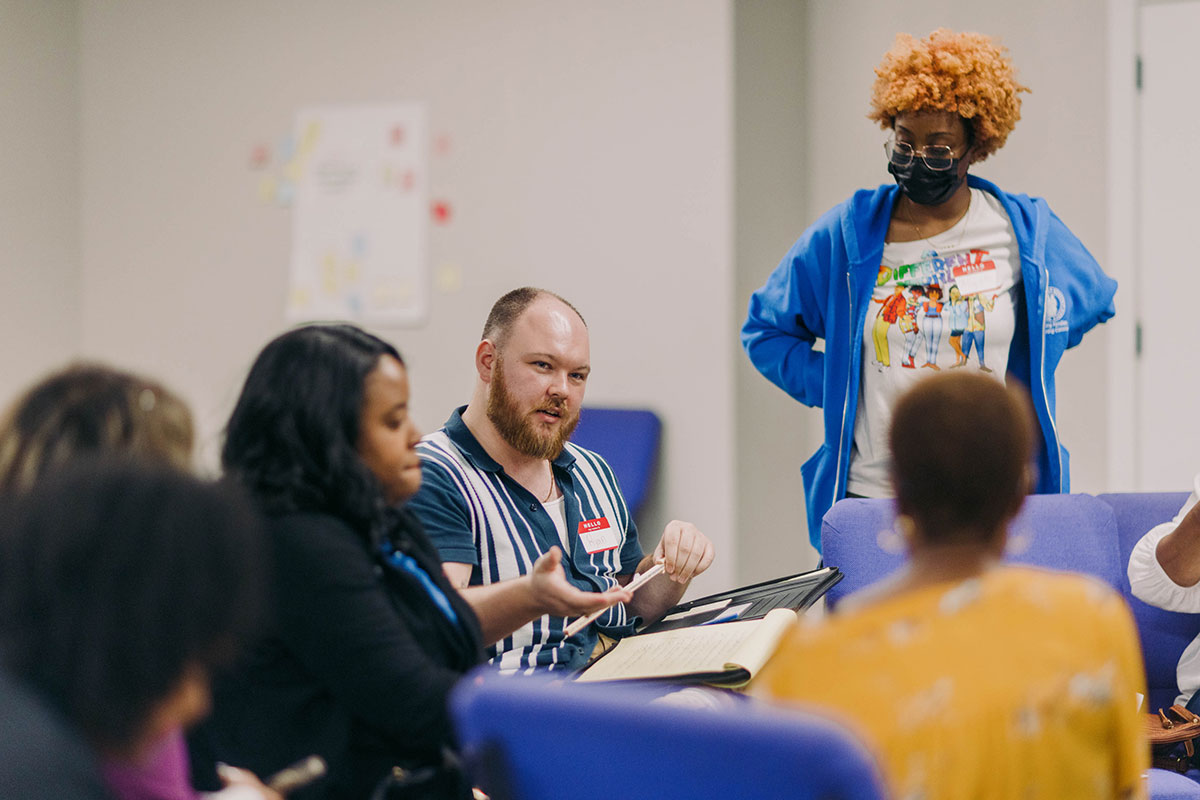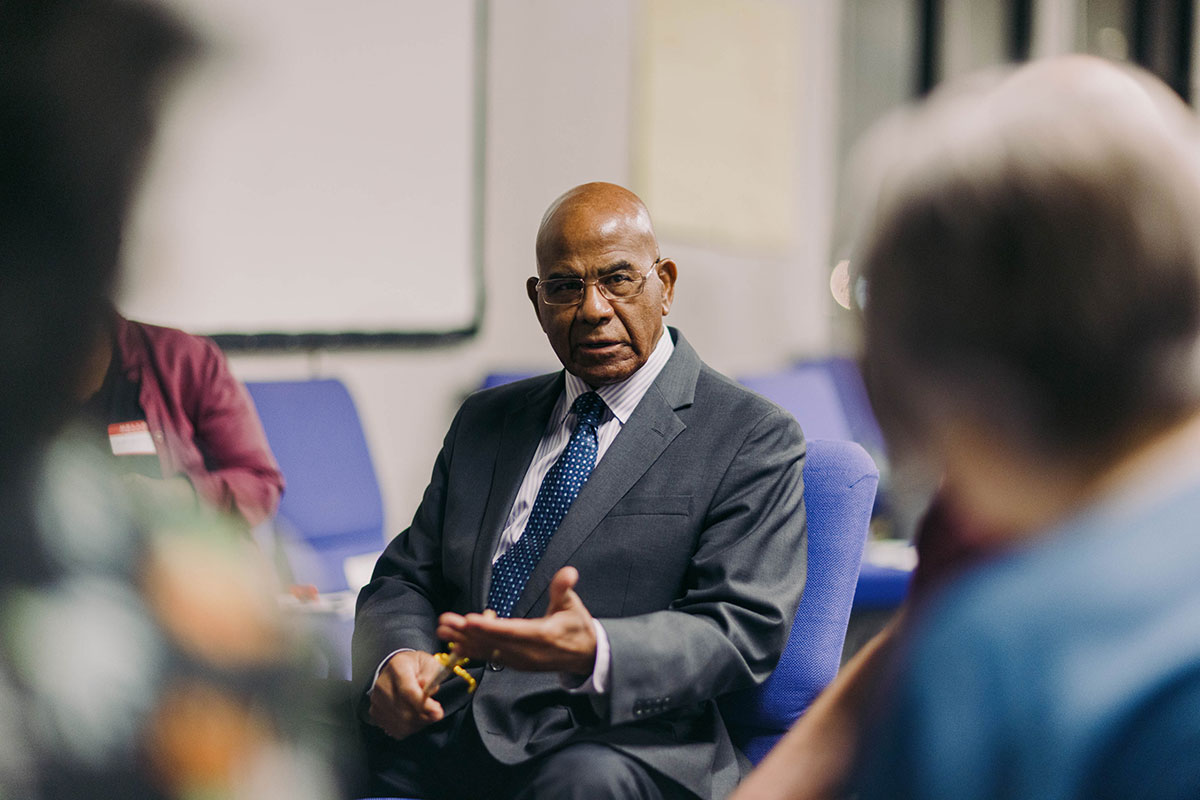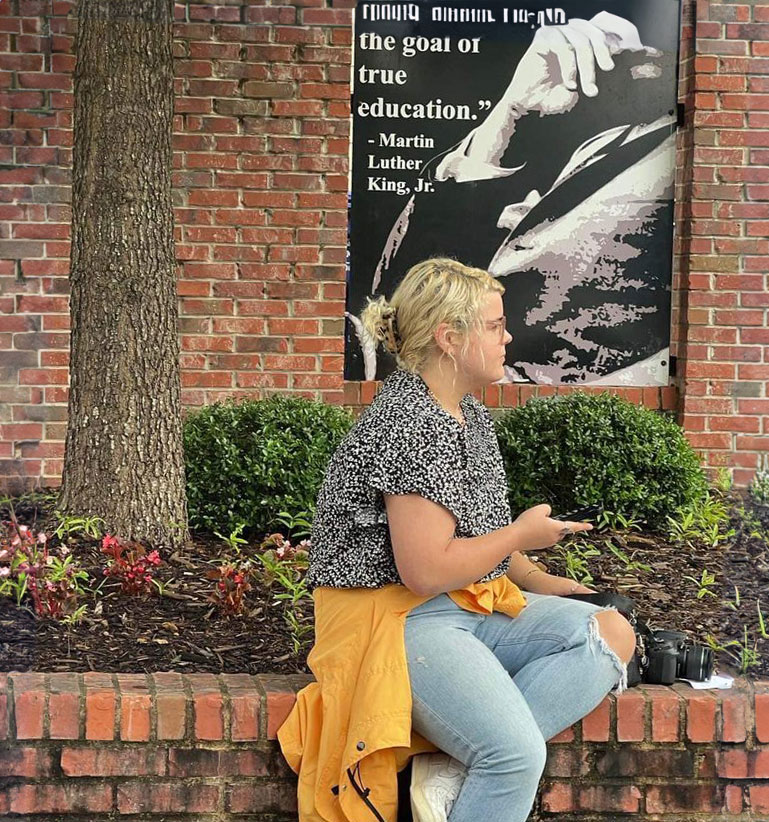Mississippi
Editor’s Note | Defining Journalism Forward: Don’t ‘Save’ Local Media. Build it.

Sometimes publisher Kimberly Griffin and I are asked how the Mississippi Free Press is different from other “local” or “statewide” media, and my first thought is always that someone is not paying very close attention to see the obvious for themselves. That’s not (usually) a snarky thought; it’s more about my concern that Americans and Mississippians in general still are not paying enough attention to what it means, or should mean, to be local or statewide rather than national or regional journalism—and what that means for democracy and representation.
As they’ve always been, those two phrases are overused and have been used even as cover for journalism that is decided not actually local, statewide or innovative.
To put it mildly, I didn’t co-found the Jackson Free Press in 2002 or the nonprofit Mississippi Free Press in 2020 to “save” what is called “local media” as it’s always been done in our state and across the nation. We certainly didn’t start MFP to recreate domineering chain media with a lot of the jobs (and mistakes made) in other states where the chains’ key operations are headquartered. We didn’t start the Free Press with permission from anyone in any power structure (which we didn’t ask for to the chagrin of some), and we didn’t start it to recreate the very serious errors and transgressions of past and often present newsrooms.
Mothballing the Old Ways
Let’s break down a few of those problems that desperately need to be left in the past to show how the Mississippi Free Press and so many emerging and truly local journalism outlets across the U.S. are decidedly different.
1. We are not founded, run or controlled by white men, and especially white men from another state. This is so important because, traditionally, white men have run journalism outlets that largely lift up, report on and feature other powerful white men. Traditionally, white men are the ones who report on and slant their political coverage. They also tend to ensure that resources flow to each other because, you know, they go back a long way. There is no way to put this gently. But it is important to say out loud because this is precisely why so few people outside their circles and vision field are centered in stories, promoted into top jobs and, thus, in a position to fix the system. And they tend to mentor young leaders who look, or at least think, like they do, and the band plays on.
2. That is closely related to the second problem: Media run by old-school men scratching each other’s backs have difficulty building and maintaining inclusive newsrooms for myriad reasons. As much as they whine to each other over cocktails at journalism gatherings about “well, we hired a _______ reporter or editor, but they left,” a huge problem is that potentially great editors and journalists see no pathway to grow past all the friend-guys into leadership. And when they don’t budget for assistants and deputy editors to learn on the job and in good training and when they even insist that top editors have to do every damn thing themselves (like booking others’ travel arrangements), they are not giving people with different backgrounds chances to prove what they can do in a future leadership position. Our training approach means we have very little turnover, and most of our current team has worked with us for at least five years and several more than a dozen years dating back to Jackson Free Press days. To coin an old political phrase, it’s about training, stupid! It’s also about having entry-level positions with real responsibility and pathways for growth.
Race-to-the-Bottom Thinking
3. At our nonprofit, we know good journalism isn’t about being “first” or “only” at anything. That is a remnant of chain-media domination obsession, and those of us who’ve done this for a while were forced to play the game against those leading it for survival. But toxic competition that means nothing to our readers (and often offends them) needs to be relegated to the trash heap.
In fact, 21st-century journalism should be about healthy collaboration and crediting other journalists who “break” a story first, which shows the character of a news organization. A “local” TV reporter who works for a national corporate chain (and still manages good work) told me recently that they don’t credit other local TV competitors that report something they follow, which is obvious. But that’s race-to-the-bottom thinking. We credit other outlets (that often don’t credit us, if at all), and usually the journalist by name, and always with a link. It costs us nothing to take the higher road here—and builds public trust because they notice we do it even for others who don’t reciprocate. Readers praise us for it, sometimes with a donation attached.

4. The descriptors “local” and “statewide” are defined poorly and often are used to serve status-quo journalism. It makes me crazy when outlets call themselves “statewide” when most of their stories are about what lawmakers do in one building in a capital city with little reporting on the people the legislation affects. And frankly, that reporting seldom makes a difference because horse-race journalism has a very limited readership—usually among political watchers, often white men who follow their favorite white-man “political” reporter (a title we don’t use, by the way, because policy is about people, not the game). Statewide is actually about getting out around the whole state and finding and listening to people whom journalism usually ignore, which most political reporters find less sexy or exciting than, say, new poll results or the latest campaign “oppo” drop (meaning negative information one campaign leads about its opposition). Our obsession is growing our ability to do that field reporting across these 82 counties. That is “statewide.”
I’ve just signed us up with the Associated Press, for instance, because it’s silly to reproduce to use our resources to report the same story other outlets do about breaking capital news. News Editor Ashton Pittman and I decided we’d prefer our growing reporter roster to be able to choose capital stories to report and have more time for deeper enterprise work. Plus, the wonderful Emily Wagster Pettus and now Michael Goldberg and others at AP are doing fantastic Mississippi reporting. We can publish and support AP, which was Mississippi’s original nonprofit newsroom with deep institutional knowledge, while increasing the number of pieces we publish every week.
No matter how you twist it, a regional or national chain (or as power players have renamed it now, “networked hub”) is not “local” journalism. It is regional at best because the real decisions (including about treatment of competition and desired domination) are emanating from the same central source, as is the journalism and reporting ethos, including how you treat other journalists in the news ecosystem.
Showing Up, Building Relationships
5. Speaking of ecosystem, a healthy one that avoids supporting “winners” and sprinkling crumbs to other outlets not described in No. 1 above should be the primary goal of anyone who is trying to, um, “save” local media, which is actually a sexy thing to do now as national outlets and big chains lay off hundreds of workers. Funders should actually spend a lot of time on the ground getting to know both local people and newsrooms to understand who is serving whom and how.
That is, big media or chains aren’t going to “save” anything, people, and certainly not the kind of necessary local media that has never really existed in his nation. By that, I’m not disparaging or discounting any good journalism or locally owned outlets that did or do it right—but that has long been against the corporate grain. The bottom line is that the people who control media (see No. 1) have never collectively had the urge or will to not create a nation filled with white media separate from Black or Brown media. That means that the people of the United States, not to mention right here in Mississippi, have long operated with two media ecosystems with many truths and realities hidden in stellar ethnic media that seldom bled into what has been dubbed “mainstream” journalism.

In 2002, I co-founded the Jackson Free Press with the belief that the capital city deserved journalism that rejected that binary paradigm. Jackson then had white-serving “local” media, including a “statewide” Gannett newspaper bragging about its so-called diversity while featuring Black crime in the capital city continually on its front page. It featured a popular drumbeat of often-unfair attacks on the city’s first Black mayor and his Black police chiefs everywhere from page 1 to columns to cartoons—and was furious when that mayor talked about its “institutional racism” in an interview with my paper. That newspaper’s event listings even routinely sent most folks to the suburbs to support businesses and have fun, which has a direct impact on local economies. (Inclusive event calendars matter to readers, all.) Folks told us that white and Black people would “never” read the same local publication—and we proved them wrong.
We did that by showing up, building relationships, reporting uncomfortable truth often only found in Black and Brown media, training and hiring local young people whether they stayed with us or took those skills elsewhere (and many are still in our network and working with us including in leadership roles). Key to the Free Press’ longevity and dedicated “audience,” as the industry calls it these days, has long been listening to our readers deeply and not assuming they’re all alike or did not want the level of journalism we could provide—whether it from our journalism landing a Black mayor (that corporate media endorsed) on trial twice or helping put a Klansman in prison for 1964 kidnapping and murders of two young Black men.
So, these are ways we’re different, and there are others I’ll save for another day. Bottom line: The Free Press approach shouldn’t be considered innovative, but we’re often lifted up in that way, and I get why. What we are is truly local and, since 2020, statewide. And, I’m thrilled to say, growing. We appreciate every single reader, donor and funder who understands our model and is helping us spread it.
Donna Ladd’s note: After original publication Friday, I corrected a couple type problems, such as the use of “breaks” instead of “break” as well as made several word tweaks. If you are reading this on your phone, these changes may not be reflected in the text above due to technical difficulties that should be solved soon.












You must be logged in to post a comment Login